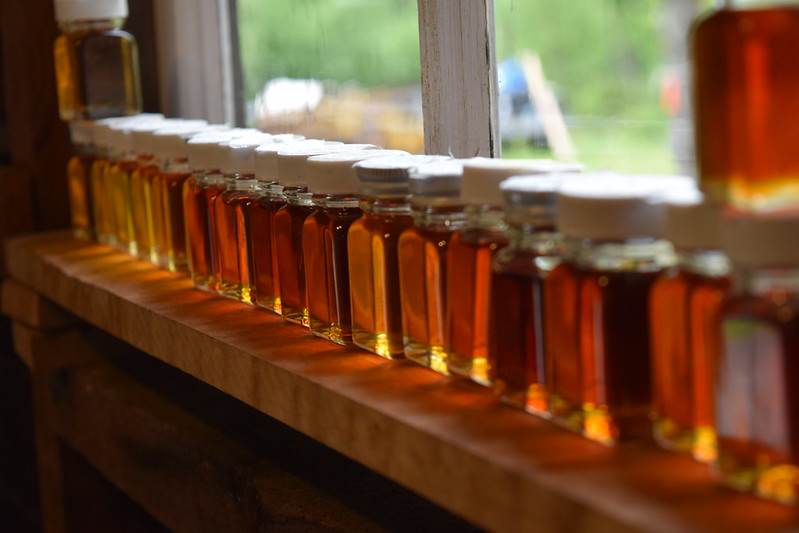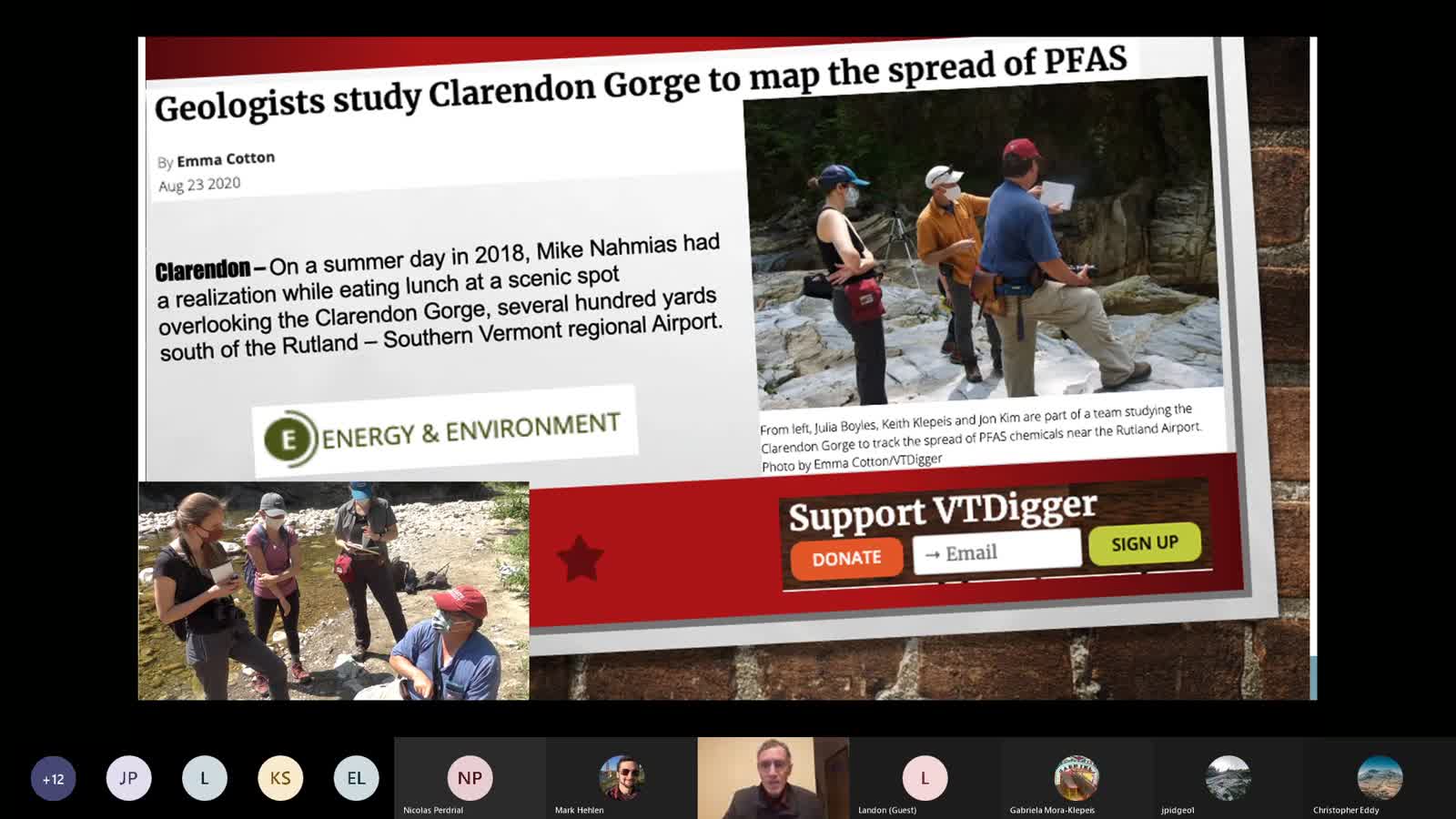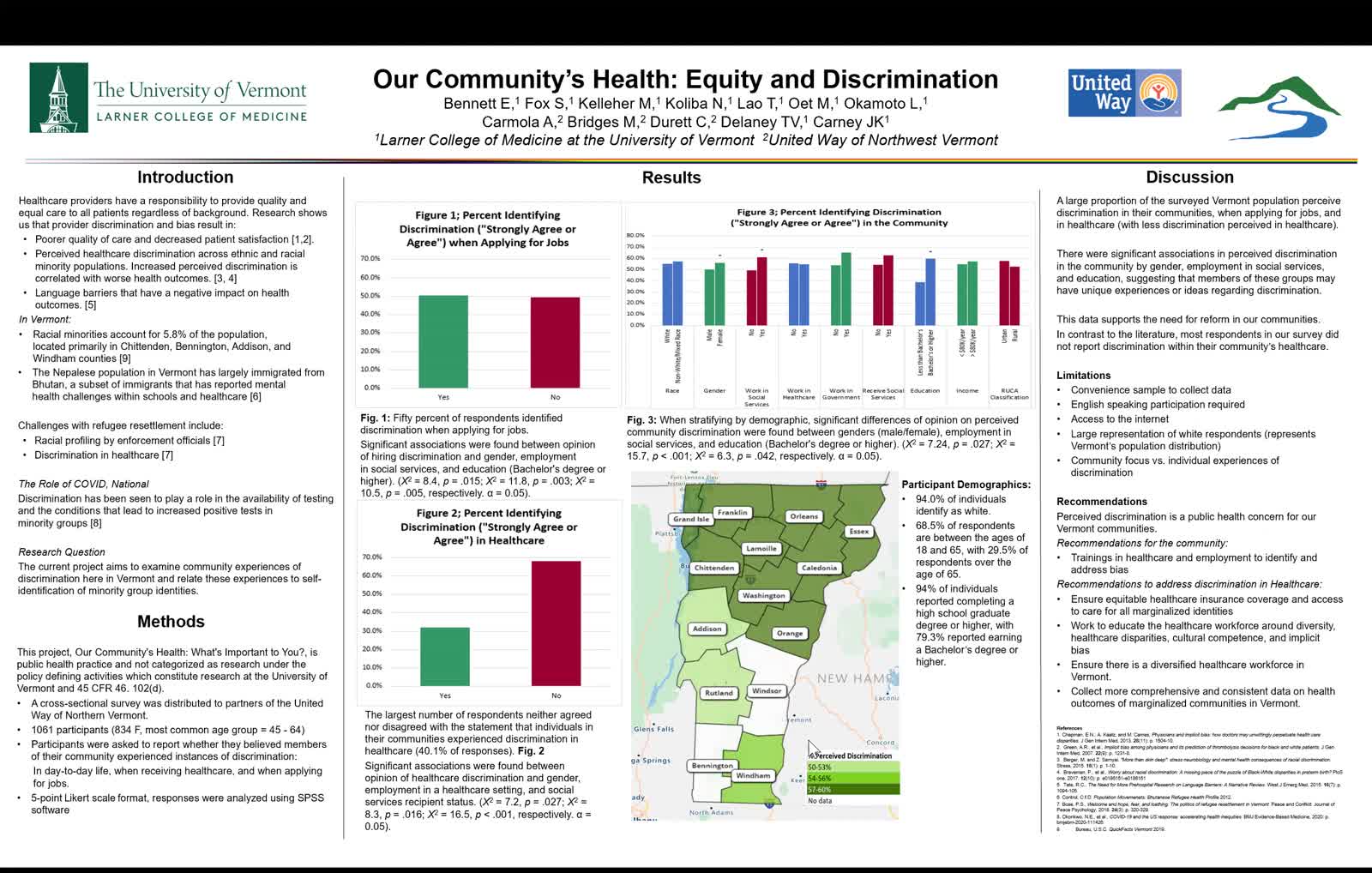Search Results
Results for: 'University of Vermont'

There are four grades of pure maple syrup; Golden Color/Delicate Taste, Amber Color/Rich Taste, Dark Color/Robust Taste and Very Dark Color/Strong Taste. Each grade has a range in color as defined by its light transmittance. Knowing the color of p...

North American Maple Syrup Council
The North American Maple Syrup Council is an international organization, founded in 1961. The purposes of the Council are to promote research in the chemistry and technology of maple sap and the products derived from it; in sugarbush management an...

Most people know that to make maple syrup you have to do a lot of boiling. You collect the sap from the trees and you evaporator the water while concentrating the sugars. You might not know that to determine if you actually have correct density sy...

The sugaring season has been over for a while. Maple trees ended their annual period of dormancy when their winter buds broke, allowing new leaves to emerge. These lush green leaves are now working to produce all the energy needed for the tree to ...

In Vermont, Grade A maple syrup is divided into four distinct color classes. Those classes are Golden, Amber, Dark and Very Dark. The lightest grade of syrup, Golden, has the most delicate flavor. A lot of the time it will be made at the beginning...

Maple trees managed for sap production remain part of a forest ecosystem. Forest ecosystems are complex communities of plants, animals and microbes all interacting with their physical environment and climate. Forests are especially competitive env...

UVM Geology Seminar - Keith Klepeis - 11/16/2020
PFAS groundwater contamination near Rutland, Vermont: how to communicate geological research to the public and other non-scientist stake-holders

Our Community's Health: Equity and Discrimination
This project, Our Community's Health: What's Important to You?, was a cross-sectional survey distributed to partners of the United Way of Northern Vermont. 1061 participants were asked to report whether they believed members of their community ...